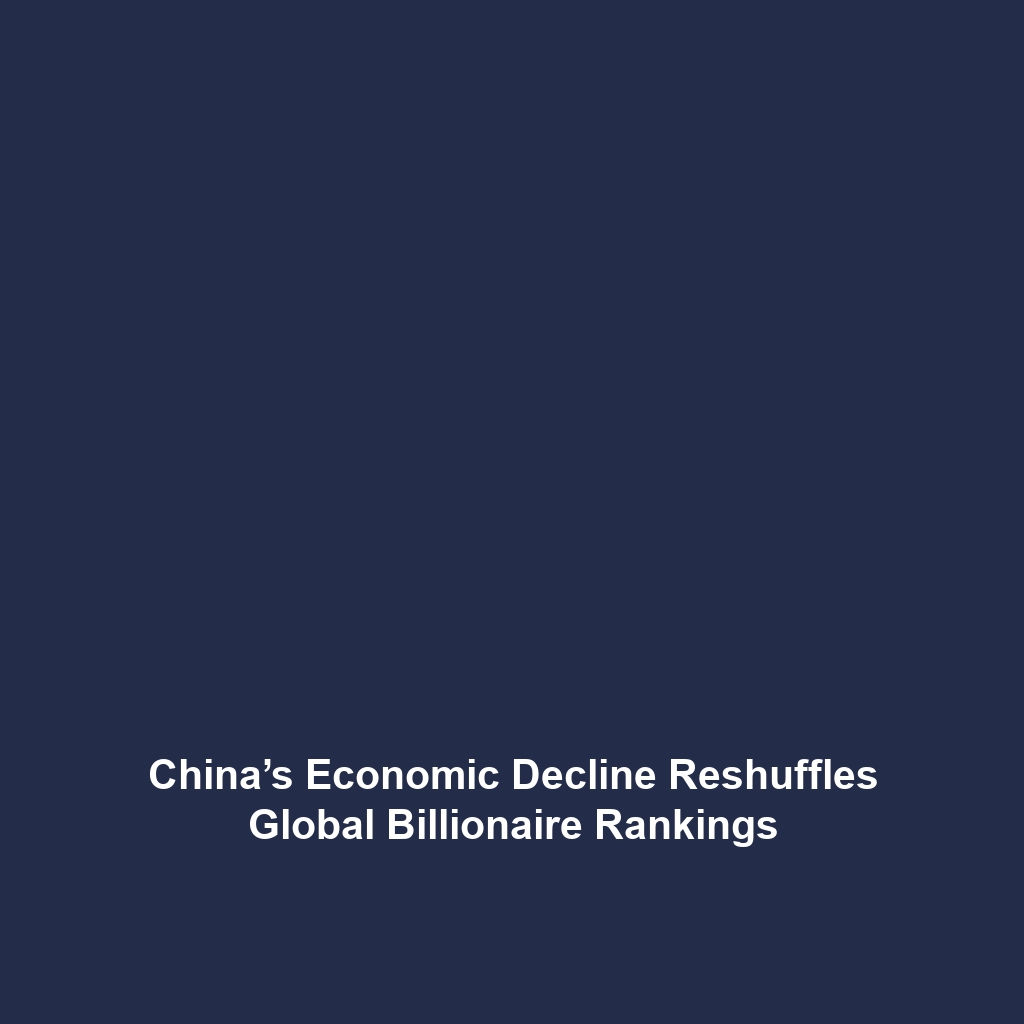Your cart is currently empty!
Tag: Wealth Distribution

David Geffen Buys Record-Breaking Yacht
David Geffen Buys Record-Breaking Yacht
David Geffen Buys Record-Breaking Yacht
Renowned music and entertainment mogul David Geffen has made headlines with his recent acquisition of a superyacht valued at an astonishing $500 million. This purchase is poised to set a new benchmark in the yacht industry, as it represents the largest private yacht sale recorded in 2024. The yacht, which has yet to be officially named, surpasses previous records held by other high-profile purchases in the competitive market of luxury maritime vessels.
Details of the Purchase
According to industry sources, Geffen finalized the transaction with a private sale in early September 2024. Details surrounding the yacht remain confidential; however, insiders indicate that it features state-of-the-art amenities, including luxury suites, a helipad, and expansive outdoor decks designed for optimal relaxation and entertainment. The vessel’s design is said to be inspired by some of the world’s most sought-after yacht builders, although the specific manufacturer has not been disclosed.
Yacht Market Insights
The luxury yacht market has experienced significant growth in recent years, driven by an increasing number of high-net-worth individuals seeking personalized maritime experiences. According to a report by Bloomberg, the global market for superyachts is projected to grow at a compound annual growth rate (CAGR) of 10% over the next five years. Factors contributing to this trend include a rise in wealth accumulation, especially among tech entrepreneurs, and the growing trend of remote work enabling individuals to invest in lifestyle changes.
Geffen’s purchase is indicative of this evolving market. As luxury becomes more accessible to an elite class of buyers, the appeal of owning a superyacht as both a status symbol and a means of leisure is becoming increasingly attractive. Similar purchases, such as that of Jeff Bezos, have drawn media attention and speculation regarding the future of yacht ownership among billionaires.
David Geffen: An Industry Pioneer
David Geffen is a towering figure in the entertainment industry, known for founding Geffen Records and co-founding DreamWorks SKG. His success has enabled him not only to dominate the music and film sectors but to also invest in various luxury assets, including real estate and art collections. Geffen’s foray into yacht ownership is seen as a continuation of his penchant for high-end investments.
“Geffen has always been ahead of trends in entertainment and luxury,” said Jane Smith, a luxury goods market analyst at the Luxury Institute. “This yacht purchase is not just about leisure; it reflects a broader trend where ultra-high-net-worth individuals are investing in experiences and assets that symbolize exclusivity and prestige.”
Public and Media Reaction
The announcement of Geffen’s yacht purchase has generated significant discussion on social media platforms and in financial circles. While many admire his bold investment, others criticize the extravagance amid ongoing economic uncertainty. Commentators have pointed out the stark contrast between the lifestyles of billionaires and the everyday realities faced by ordinary citizens, igniting conversations about wealth distribution and the implications of such lavish expenditures.
In a recent tweet, financial commentator Elena Rodriguez remarked, “It’s hard to reconcile the purchase of a $500 million yacht with the struggles facing many today. This could be seen as tone-deaf in these times.” However, supporters counter that such investments contribute to the economy through job creation within the luxury yacht sector.
Impact on the Luxury Yacht Sector
Geffen’s record-breaking acquisition is likely to have ripple effects within the luxury yacht market. Experts predict that the sale could trigger a surge in high-value yacht listings as wealthy individuals look to capitalize on the demand for luxury vessels. Builders and brokers may also increase their investments in innovation and design to cater to discerning clients, ensuring yachts are equipped with groundbreaking technology and unparalleled comfort.
“This purchase sets a precedence,” stated Liam Thornton, a luxury yacht broker. “When someone like Geffen makes such a significant investment, it validates the market potential for high-value vessels. Buyers are likely to see this as a signal that now is the time to invest in luxury yachts.”
Conclusion
David Geffen’s acquisition of a $500 million superyacht marks a significant milestone, not only for him personally but for the entire luxury yacht market. As the largest private yacht purchase of 2024, it underscores the ongoing growth in the sector and reflects the interests of ultra-high-net-worth individuals. The implications of this purchase extend beyond mere luxury items, raising discussions about wealth, economic disparities, and the evolving landscape of luxury investment.
The yacht’s unveiling and subsequent features are highly anticipated within both the luxury and business communities, as it promises to set new standards in superyacht design and ownership.

China’s Economic Decline Reshuffles Global Billionaire Rankings
China’s Economic Decline Reshuffles Global Billionaire Rankings
China’s Economic Decline Reshuffles Global Billionaire Rankings
China’s ongoing economic downturn has had profound implications on the global wealth landscape, most notably resulting in the removal of 155 billionaires from the prestigious list of the world’s wealthiest individuals. The ripple effects of this recession extend beyond financial losses for these high-net-worth individuals, reshaping the distribution of wealth across the globe.
Understanding the Economic Context
In recent years, rapid economic growth in China has significantly contributed to the emergence of a new class of billionaires. According to Forbes, the nation was home to approximately 1,200 billionaires, a figure that has been sharply reduced by the recession affecting various sectors, including real estate and manufacturing.
The decline in economic performance can be attributed to multiple factors, including stringent COVID-19 policies, a debt crisis within the property sector, and declining consumer confidence. The Chinese government’s decision to adjust its economic policies, aimed at promoting sustainable growth rather than rapid expansion, has further complicated the landscape.
Impact on Billionaires and Wealth Distribution
The significant drop in the number of billionaires is indicative of a broader trend in wealth distribution captured in the recently released Bloomberg Billionaires Index. For instance, China’s richest individuals such as Jack Ma and Zhong Shanshan experienced sharp declines in their fortunes, as their businesses faced increased regulatory scrutiny and market challenges.
The reduction of billionaires in China is not only a local phenomenon but also reshapes the global billionaire landscape. These changes mean a notable shift in wealth concentration, potentially benefitting billionaires from other countries as they gain relative prominence on lists compiled by financial media outlets.
Global Reactions and Future Outlook
In response to the decline of wealth among Chinese billionaires, global markets have reacted with a mix of caution and interest. Investors are closely monitoring how China adapts its economic strategy in the coming years. Financial analysts are divided on the long-term impact of these shifts, with some predicting accelerated global integration of wealth, while others foresee a potential return to stability for China’s economy.
Mark Zandi, chief economist at Moody’s Analytics, stated, “China’s economic challenges will require concerted efforts to stabilize the financial markets and restore investor confidence. Until then, the global economic landscape will remain quite volatile as adjustments are made.” This sentiment underscores the unpredictability of markets heavily influenced by China’s economic performance.
The Bigger Picture: A Shift in Global Wealth
Historically, the rise and decline of billionaires often coincide with broader economic trends. The current condition in China serves as a stark reminder of the interconnectedness of global economies. As Beijing wrestles with internal economic pressures, the effects are felt worldwide, particularly in markets reliant on robust trade links.
Countries such as the United States and India may see increased activity among their wealthiest individuals, as they potentially capitalize on the market void left by the diminishing count of Chinese billionaires. This shift could validate forecasts regarding the eventual center of wealth moving away from Asia towards the West.
Conclusion
China’s economic decline has reshaped the landscape of global wealth, marking a significant reduction in the number of billionaires from the country. As 155 billionaires disappear from consolidated wealth lists, the implications transcend national borders, emphasizing the interconnected nature of global economics.
Emerging from this economic turmoil may depend on China’s capacity to stabilise its economy and restore confidence. As the situation evolves, the global community is left to grapple with the profound changes to wealth distribution and the ongoing implications for economic policies worldwide.
For further insights into the shifting dynamics of wealth and the global economy, readers can visit trusted financial news platforms such as Bloomberg, Forbes, and The Economist.

Forbes 400: Meet the Richest People in America
Forbes 400: Meet the Richest People in America
Forbes 400: Meet the Richest People in America
The annual Forbes 400 Rich List has been released, spotlighting the nation’s wealthiest individuals and their significant impact on both the economy and society. This year’s list features the top 25 richest Americans, detailing their respective industries and net worths, illustrating a concentrated wealth among a small segment of the population.
The Top 25 Wealthiest Americans
According to the latest data from Forbes, the richest individual in the United States continues to be Elon Musk, the CEO of Tesla and SpaceX, with a staggering net worth of $251 billion. This marks an increase from the previous year, as Musk continues to leverage advancements in electric vehicles and space exploration. Following closely in second place is Jeff Bezos, founder of Amazon, with a net worth of $165 billion, reflecting the company’s consistent growth in e-commerce and cloud computing services.
The tech industry dominates the top spots, with individuals like Bill Gates ($135 billion), Mark Zuckerberg ($110 billion), and Larry Ellison ($109 billion) making the list. These figures reveal the dominance of technology as a driver of wealth, underscoring the transformative effect of digital platforms in modern economies.
Key Industries Driving Wealth
The 2023 Forbes 400 illustrates that technology, finance, and healthcare are the leading industries producing billionaires. The technology sector alone accounts for more than half of the list, reflecting its critical role in innovation, job creation, and economic growth. This trend highlights how technological advancement is reshaping industries entirely.
In finance, notable figures such as Warren Buffett ($117 billion) and Ken Griffin ($34 billion) emphasize the importance of investment strategies and market navigation in achieving significant wealth. The financial services industry remains a powerful force in the economy, showcasing the profitability of investing in diverse markets.
Regional Wealth Concentration
Geographically, California and New York are well-represented in the Forbes 400 list. Silicon Valley is a hub for tech billionaires, with Musk and Zuckerberg as prominent examples. Meanwhile, New York remains a pivotal center for finance and commerce, evidenced by billionaire figures like Steve Schwarzman and Lloyd Blankfein.
Notably, Texas’s status as a growing center for fortune accumulations is reflected by the presence of Elon Musk, who moved Tesla’s headquarters from California to Austin, further indicating the shifting dynamics in where wealth is generated and housed.
Economic Impact of the Billionaires
The wealth amassed by the individuals on the Forbes 400 list has significant implications for the American economy. These billionaires are often at the helm of businesses that drive job creation, technological innovation, and investment opportunities. For instance, companies such as Amazon and Tesla lead in their respective fields, influencing market trends and consumer behaviors.
Moreover, philanthropic efforts by many billionaires have resulted in significant contributions to public welfare. The Billionaire’s Pledge, which encourages wealthy individuals to give away at least half of their fortunes, has garnered participation from several top names on the list, highlighting the social responsibility that accompanies great wealth.
Challenges and Critiques
Despite their wealth and contributions, the billionaires on the Forbes 400 list face increasing scrutiny regarding wealth inequality in America. Critics argue that the concentration of wealth in the hands of a few undermines economic mobility and contributes to systemic issues affecting lower-income populations. Discussions surrounding tax reform, minimum wage adjustments, and wealth redistribution are prevalent and bring forward deep societal debates.
Additionally, as large corporations continue to grow, the impact on small businesses and local economies is subject to examination. The rise of monopolistic practices within industries raises questions about competition and fair market practices.
Conclusion
The Forbes 400 Rich List remains a powerful indicator of wealth distribution in the United States, illuminating the names and industries that define high-net-worth individuals. As these billionaires influence the economy and society at large, discussions about their roles, responsibilities, and the implications of their wealth continue to evolve.
As the nation grapples with issues surrounding economic disparity, the actions and impacts of the wealthiest Americans will be crucial to watch in the coming years. For further reading on this topic, explore insights on wealth inequality and economic policy reforms from reputable sources such as The Brookings Institution and the Economic Policy Institute.


